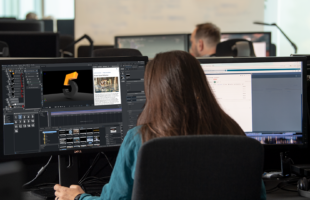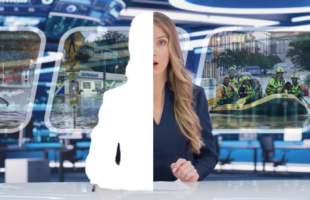Sofia, Bulgaria – Chaos Group announced the release of V-Ray 3.0 for Maya, delivering a powerful new set of features and optimisations focused on speeding up lighting, look development, and rendering workflows.
“This is, by far, the most substantial upgrade for our rendering pipeline since we switched to V-Ray five years ago,” said Kirk Shintani, Head of 3D at a52. “The ‘beta’ was stable and amazingly fast, and the staff reaction to 3.0 is summed up with one word, ‘Whoa.’ It’s that kind of fast. It allows us to stay focused on making cool imagery. That’s why we do what we do, isn’t it?”
Throughout the V-Ray 3.0 for Maya development cycle, Chaos Group worked with artists and studios to benchmark and analyses a number of production scenes. From their research, they found opportunities for significant speed increases as their team refined each section of code. These advances, coupled with beta feedback, bring about many of the key features in V-Ray 3.0 for Maya including:
Faster Ray Tracing and Rendering Performance
V-Ray 3.0 for Maya introduces a faster ray tracing core that significantly speeds up a number of calculations for global illumination, lighting, shading and more. For additional speed gains, V-Ray 3.0 also includes an option to enable the Intel® Embree ray caster for static and motion-blurred geometry, proxy objects and instances.
Faster Feedback
V-Ray 3.0 for Maya adds a new Progressive Image Sampler with a full range of production features and is compatible with all of V-Ray’s GI algorithms such as irradiance map, light cache, and brute force path tracing. The Progressive Image Sampler generates quick feedback even with complex features such as volumetric effects, depth of field, and motion blur. An enhanced V-Ray RT engine renders directly in the Maya Viewport and supports animated sequences as well as final frame rendering.
Advanced Characters and Creatures
V-Ray 3.0 optimises shading and rendering of millions of strands of semi-transparent hair with greater speed and efficiency. For added detail and realism, V-Ray 3.0 now supports subsurface scattering with object-based and ray traced illumination, and the new VRaySkinMtl skin shader.
Pricing and Availability
V-Ray 3.0 for Maya is available now. V-Ray 2.0 upgrades start at $420/€300 and the full workstation license price will be $1,040/€750. Upgrades to V-Ray 3.0 for Maya plus 10 universal render nodes start at $970/€700. Customers should contact their local reseller or Chaos Group representative for more pricing information.







